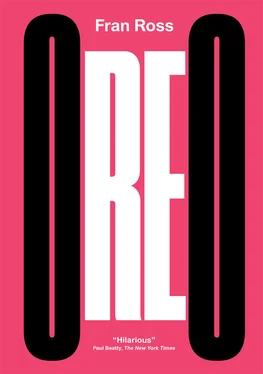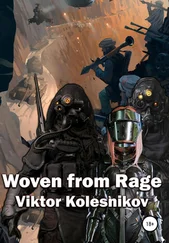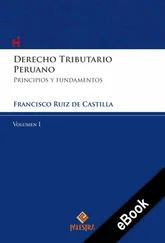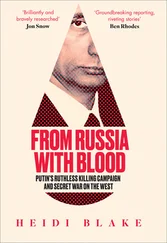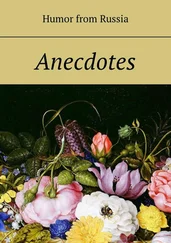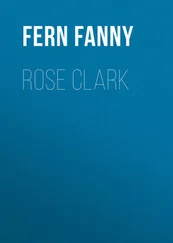Oreo was still angry with him for doubting her, and in her story about the rapist she added such abominations as: “The Empire State Building rises penisly to the sky. As architecture, manurially speaking, it stinks.” She felt it appropriate to employ genito-scatological adverbs to express academic vexation.
The professor wept and promised never to cross out her ly ’s until he was sure of her intentions.
A few months later, the professor’s gait was bouncier as he came up the front steps. His blood donations seemed to be more and more a source of comfort and anemia to him. Oreo found out that much of the credit for the new Lindau belonged to his latest girlfriend, a wedge of a different fit. Oreo overheard him mumbling happily to himself about the many joyous conflations he and his new friend had had together. That one was easy for Oreo to figure out. “Conflation, from conflare , ‘to blow together,’” she said to herself. “Oh, shit. The professor’s just talking about plain old sixty-nine.”
Oreo’s milkman, Milton, although not officially a tutor, was one of her favorite teachers. Milton had observed much along life’s milk route and was eager to pass on his observations. As he came up the steps to leave his deposit, he would also deposit his thought for the day. Although others had doubtless made similar observations, it was from Milton the milkman that Oreo first heard (here cast in Milton’s favorite syntactical form): You ever notice that all dentists have hairy arms and a large wrist-watch? You ever notice that insurance men walk fast? You ever notice that African men and women all look like men, except Masai warriors, who look like women? You ever notice that you feel guilty when a bank clerk checks up on your balance? You ever notice that you feel guilty sitting in a movie theater waiting for them to turn the lights out and start the picture?
Milton the milkman had an udderful of theories, his Grade A theory a three-stage rumination upon the supposition that short toes, kinky hair, and impacted wisdom teeth were signs that their bearers were further along on the evolutionary scale than long-toed, straight-haired, erupted-wisdom-toothed people. He came up on the porch one day, sat down, and took off his shoes and socks. He believed in visual aids to get his ideas across to modern, media-oriented youth. “Look,” he said, pointing to his feet. “See? Short toes. Now, what does this mean? This means that I am on my way to being your man of the future. You ever notice that some people have toes like fingers? Now, I ask you, do we go around grasping things with our feet any more? The answer is no. Prehensile toes went out in the year one. Therefore, anybody with long toes is like a throwback. Therefore, I, Milton, with my short toes, am practically your man of the future. Pretty soon, toes will disappear altogether and people won’t be able to walk. But that will be okay, because by then everybody will be their own helicopter. They’ll be able to take off from a standing start and propel themselves wherever they want to go with some kind of individualized motor mechanism.
“Now, kinky hair. Kinky hair — like that beautiful fuzzy cloud you have — is not really kinky. It doesn’t zig and zag. Kinky hair is actually coily. That’s right — coily. Each little hair is practically by way of being a perfect circle. Now, these millions of coils on your head are all jumbled up, coiling around each other. That’s why it hurts you to comb your hair. You’re pulling in one direction, the coils may be pulling in sixteen other directions. But — and this is the main thing — while the coils are doing that, they are also forming air pockets. Now, air pockets do several things. One, they keep your head warm in the winter. Two, they keep your head cool in the summer. And, three, they protect you from concussions by absorbing the shock of blows to the head. Therefore, kinky hair is certainly more useful than straight hair. It is obviously advanced hair. I mean, the evolutionary wheel had to take a couple of wrong turns before it came up with kinky hair.
“Now, impacted wisdom teeth. Everyone knows that wisdom teeth are disappearing altogether. We don’t need all those teeth, what with your processed foods, your tenderized meats. Our jaws are trying to tell us something. Our gums are saying, ‘Enough, already. Who needs this?’ So to make the message a little clearer, the wisdom teeth say, ‘I’ll just stay here under the gums. Nobody needs me out there anyway. Why should I sweat it, working away and only catching an edge of something here, a piece of something there?’ So to sum up,” he said, putting his socks and shoes back on, “short toes, kinky hair, and wisdom teeth that won’t come out — these are your three indicators as to your superior person. If you should meet anybody with all three, you’re shaking hands with the future, because such a person is so far beyond us, he or she makes the rest of us look like cavemen.”
As Milton went off the porch, Oreo patted her kinky hair, tapped her short toes, and — with supreme confidence — looked forward to the day when her wisdom teeth refused to erupt.
Another of Oreo’s regular tutors was Douglas Floors (né Flowers), her history instructor. Floors was a man of many parts — paranoid, tap dancer, cost accountant. But the chief part was the nature hater. His history lessons were extravagantly interrupted by heartfelt asides on what he had to put up with from trees and grass. He once told Oreo that he had offered to look after a friend’s pachysandra over the weekend, an offer that was hastily withdrawn when he learned that pachysandra was a plant and not an elephant seer whom no one believed. Now he cut short a discourse on the importance of ziggurats to the average Babylonian to say with a shudder, “Last night, the sunset was particularly ugly. Nasty oranges and purples, foul pinks and blues. On my way here, I saw a bird with fat cheeks — and a chest with the coloration of an autumn leaf.” He added dolefully, “Which is all right in its place: on an autumn leaf. At least you expect that kind of ugliness from an autumn leaf.”
Floors abominated the Bay of Fundy, detested the Marianas Trench, abhorred the aurora borealis, reviled the Sargasso Sea, was chilled by the Poles, North and South, and loathed any other manifestation of Mother Nature, commonplace or remarkable. It was from him that Oreo learned historical sidelights that have been suppressed by the international botanist conspiracy (code name: Botany 500): the unsightly foliage that nearly demoralized Sparta along its line of march just before the Battle of Amphipolis; the cumulative ill effects of cumulus clouds and photosynthesis on Richard III; the cypress infestation that was the last straw to relatives of bubonic plague victims fleeing Tuscany in 1347; the vindictiveness and moral turpitude of the puny (and Punic) shrubbery at Zama, the crucial factor in Hannibal’s defeat at the hands of Scipio Africanus Major; the real story behind the Wars of the Roses.
Whenever Floors came to teach, Louise flung a drop cloth over the hedges in front of the house, pulled the shades on the window giving onto the back yard, hid the flower vases and the century plant, and took the Turner and Constable reproductions off the walls. She changed James’s sun-pattern poncho and made sure the children wore nothing depicting flowers, trees, birds, clouds, mountains, rivers, or anything else that could be construed as part of nature’s bounty. Floors would enter, take off his dark glasses, turn his chair so that he would be facing a wall, and begin. “There’s a noisome Indian summer breeze blowing out there today. Such a breeze was blowing on that November day when Charles II lay on his deathbed — and greatly influenced his decision to die and start the War of the Spanish Succession.”
Читать дальше
